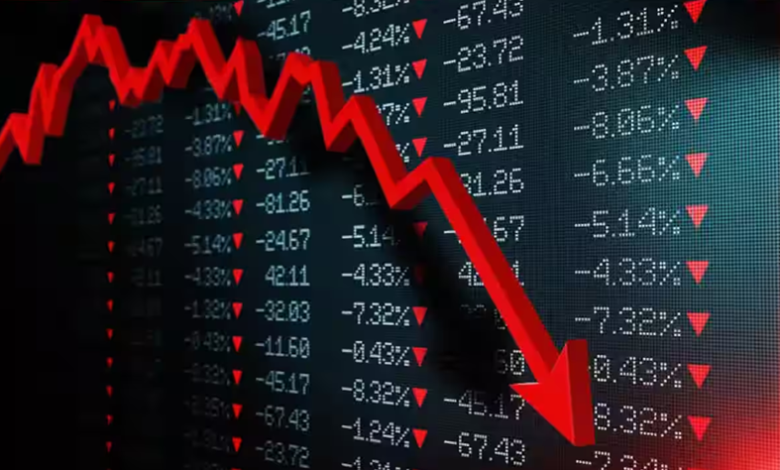Sensex and Nifty Plunge Following RBI’s Decision to Keep Interest Rates Unchanged

News Mania Desk/Agnibeena Ghosh/8th August 2024
Equity benchmark indices Sensex and Nifty continued their downward trend on Thursday after the Reserve Bank of India (RBI) decided to keep the policy rate steady for the ninth consecutive time. The central bank’s cautious approach, driven by persistent concerns over food inflation, coupled with external factors, led to a sharp decline in the Indian stock markets.
The 30-share BSE Sensex tumbled by 570.09 points, closing at 78,897.92, while the NSE Nifty dropped 178.2 points, settling at 24,119.30. These declines extended the early losses in the markets, reflecting investor apprehension following the RBI’s monetary policy announcement.
The RBI has maintained the repo rate at 6.5%, a decision that has been consistent since April of the previous year, following a series of six consecutive rate hikes totaling 250 basis points since May 2022. The central bank’s decision was announced by RBI Governor Shaktikanta Das, who emphasized that the Monetary Policy Committee (MPC) remains vigilant regarding elevated food inflation, which has continued to pose challenges to the broader inflation landscape.
The RBI’s stance to keep the interest rates unchanged is seen as a cautious “wait and watch” approach, with the central bank closely monitoring global economic cues, particularly from the US Federal Reserve. Umeshkumar Mehta, Chief Investment Officer at SAMCO Mutual Fund, noted that the RBI’s decision reflects its cautious approach as it waits for further signals from global markets before taking any significant monetary actions. Meanwhile, Indian stock markets are expected to remain in a consolidation phase as they navigate these uncertainties.
Among the 30 companies listed on the Sensex, Power Grid, Infosys, Larsen & Toubro, JSW Steel, UltraTech Cement, and Asian Paints were the top losers in Thursday’s trading session. Conversely, Tata Motors, HDFC Bank, Tech Mahindra, and ITC emerged as the gainers during initial trade, although their performance was not enough to counterbalance the overall market decline.
The market sentiment was further dampened by continuous foreign fund outflows, with Foreign Institutional Investors (FIIs) offloading equities worth Rs 3,314.76 crore on Wednesday alone. This selling spree has been ongoing for the past four days, amounting to Rs 20,228 crore being withdrawn from the cash market. V K Vijayakumar, Chief Investment Strategist at Geojit Financial Services, attributed this trend to India’s elevated market valuations and growing concerns over potential recessionary pressures in the US, as well as the unwinding of the yen carry trade, which has had a ripple effect on global markets.
Adding to the negative sentiment were weak trends in the US markets, which ended lower on Wednesday, reflecting broader global economic concerns. While some Asian markets such as Shanghai and Hong Kong traded higher, others, including Seoul and Tokyo, followed the downward trend, contributing to the overall bearish mood in the Indian markets.
On the commodities front, global oil benchmark Brent crude saw a slight increase, climbing 0.17% to USD 78.46 per barrel, indicating some resilience in energy markets despite the overall negative trends in equity markets. The sharp decline on Thursday was in stark contrast to the strong performance seen the previous day, where the BSE Sensex had rallied by 874.94 points, or 1.11%, to settle at 79,468.01, and the NSE Nifty had surged by 304.95 points, or 1.27%, to close at 24,297.50. However, the RBI’s decision, coupled with ongoing global economic concerns, has now shifted the market sentiment back to caution, with investors closely watching for further developments in both domestic and international economic policies.






